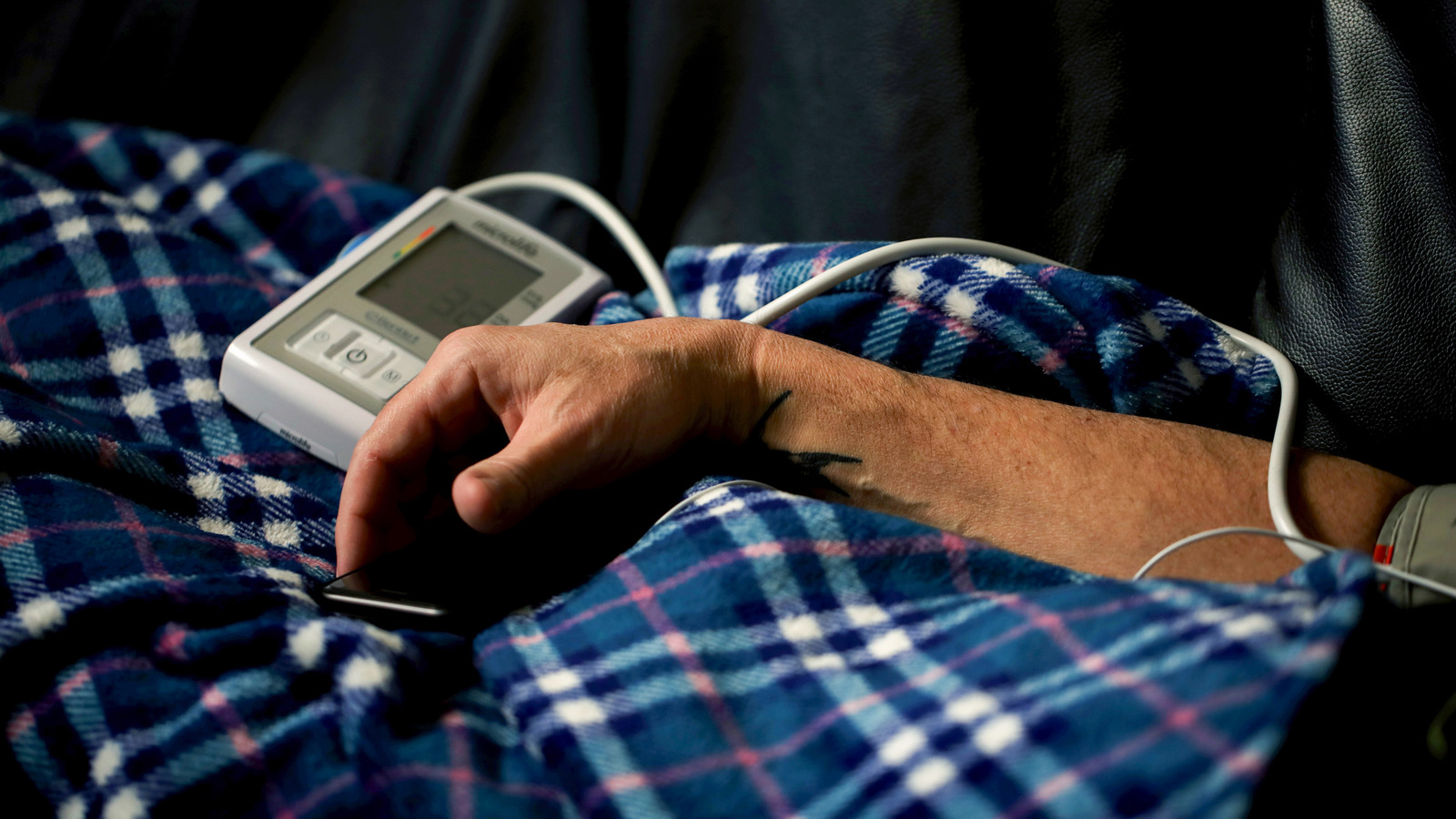This article first appeared in The Checkup, MIT Technology Review’s weekly biotech newsletter. To receive it in your inbox every Thursday, and read articles like this first, sign up here.
A year or so ago, I talked with a man who said ketamine saved his life. He had been depressed, contemplating suicide, and then found a psychiatrist who prescribed him ketamine lozenges. Ketamine is used as an anesthetic, but some studies suggest it also holds promise as a treatment for depression and other psychiatric disorders. So many doctors prescribe the medication to people with those conditions, even though it’s not approved to treat them.
Ketamine is actually pretty easy to find. I’ve gotten social media ads for online ketamine clinics, and you probably have too. According to the FDA, it might be a little too available. Last week, the agency issued a warning against the use of compounded versions of ketamine to treat psychiatric disorders, especially oral dissolving versions that make it possible to use the medication at home. “The lack of monitoring for adverse events, such as sedation and dissociation, by an onsite health care provider may put patients at risk,” the letter states.
So how did we get here? Let’s take a step back.
Ketamine is FDA approved for general anesthesia. It is not approved for the treatment of any psychiatric disorder, a point that the warning letter makes abundantly clear. (The nasal spray, Spravato, which is FDA approved to treat depression, contains esketamine, which is only one of the two molecular forms found in ketamine.)
But just because ketamine isn’t FDA approved for psychiatric problems doesn’t mean doctors can’t prescribe it for such uses. They can and often do. It’s called off-label use. When used for anesthesia, ketamine is delivered intravenously or as an injection, both of which require a health-care professional. And many clinics offer ketamine this way for depression too.
But compounding pharmacies can create custom-made formulations of ketamine that can be taken at home, including nasal sprays and oral versions. These formulations are not FDA approved, meaning the agency has not verified their safety or effectiveness—hence the warning letter.
Ketamine has become especially readily available in the past several years. When the government relaxed the rules around telehealth access to controlled substances during the pandemic, a new opportunity arose. Suddenly doctors could prescribe ketamine without ever seeing the patient in person, and then pharmacies could ship out an oral formulation to take at home. “Startup companies cropped up almost overnight,” according to one Medscape article.
Ketamine, like all drugs, does come with some risks. At high doses, the medication can induce a trance-like state, where users feel numb and dissociated from their body. It can spark hallucinations. Ketamine can also cause sedation, slow breathing, and elevated blood pressure.
But Boris Heifets, an anesthesiologist and neuroscientist at Stanford, doesn’t see the warning letter as primarily as an expression of concern over the safety of compounded ketamine. “If you read closely, it’s actually pretty flimsy,” he says of the case made for the dangers. He views the letter more as an attempt to curtail the rampant spread of telehealth ketamine clinics, which rely on compounding pharmacies to prepare the drug in ways that make it convenient to take at home. “The public health issue is that people are being indiscriminately prescribed the drug that has abuse liability, and with minimal supervision,” he says.
So is at-home ketamine safe? William Dudney, a psychiatrist in Tampa, Florida, has been offering patients ketamine for five years in the form of “troches,” waxy lozenges about the size of a Chiclet. The troche gets tucked between the lip and gum until it melts. His patients do take ketamine at home, but he prescribes troches that contain very low doses—between 35 and 70 milligrams.
Some doctors prescribe much higher doses. On various Reddit threads, patients who make use of online ketamine clinics say they’ve started their treatment with 450 mg doses and ramped up to 900 or even 1,200 mg per session.
“It is way too much, way too fast,” Dudney says. “This 400-to-600-milligram craziness—this is for people who are seeking a hallucinatory experience. Hallucinations and dissociations are considered side effects, and that’s not the purpose. That’s recreational abuse.”
The latest warning from the FDA is actually the second risk alert the agency has issued addressing compounded ketamine. The first came last year and targeted nasal sprays. Heifets says these letters are intended to put pressure on the supply side. “They’re basically raising an alarm,” he says. “If you are supplying ketamine for these off-label practices, be sure you know exactly what you’re doing, because there may be some regulatory action here.” Will it be enough to chill the rampant off-label use of ketamine? Probably not. But there are signs the industry’s meteoric rise may be slowing anyway.
In a previous version of The Checkup, we predicted that the ketamine bubble might be about to burst. The shuttering of some high-profile clinics this year, coupled with increased regulatory attention, suggests maybe it already has.
Another thing
Whether a ketamine “trip” is necessary to experience the antidepressant benefits of the drug is a matter of some debate. And it’s a question Heiferts and his colleagues tried to answer in a unique study that just came out on Thursday.
One of the difficulties in trying to assess the efficacy of ketamine is that blinding is nearly impossible. Patients know whether they got the real thing or a placebo. But this study was designed to offer a clever workaround. The researchers enrolled 40 participants with moderate to severe depression who also happened to be undergoing surgery. They gave half of them ketamine as part of their anesthetic protocol. Because the participants were under anesthesia, they had no way of knowing whether they received ketamine or not.
The study design also gave the scientists a chance to examine whether the experience of ketamine—the trip—is required for the drug to work. Because the patients were under anesthesia, “they’re not having any particular conscious experience,” Heiferts says.
The results weren’t quite what the researchers expected. The participants who received ketamine during anesthesia did experience a large improvement in their depression symptoms. But so did participants in the placebo group. I asked Heiferts what he makes of these results. “I think expectancy is incredibly powerful,” he says. “This study does not show that ketamine is ineffective.” What it shows, he says, is that it was possible to match ketamine’s effect size by providing the placebo group with that same expectation of benefit coupled with a landmark event: surgery. “You have expectations that something is going to change afterwards, and you step through a door. That’s basically what we’ve re-created with surgery,” he says.
Read more from Tech Review’s archive
Psychedelics are undeniably having a moment, and the therapy might prove particularly beneficial to women, wrote Taylor Majewski in this feature from 2022.
But will the moment last? In a previous issue of The Checkup, Jessica Hamzelou argued that the psychedelic hype bubble might be about to burst.
How do psychedelics change our mental state? Scientists are using natural-language processing to analyze people’s trips.
Emery Brown has been studying anesthesia for more than a decade to understand how different anesthetics affect the brain. Now he and his colleagues plan to harness these compounds as tools to study the brain’s inner workings, writes Adam Piore in this profile of Brown from earlier this year.
From around the web
A fascinating new study sheds light on what might be causing neurological problems in people with long covid: lower serotonin levels caused by lingering virus in the gut. (New York Times)
Scientists found that a dietary supplement reverses declining fertility in older mice. This “undeniably groundbreaking” work provides a potential path to new fertility treatments for humans. (Nature)
A City University neuroscientist whose research propped up an experimental Alzheimer’s drug has been accused of scientific misconduct, and now some scientists are calling for the clinical trials to be suspended. (Science)
Wearable devices outperform human observers when it comes to tracking changes in the movement of people with Parkinson’s disease, a finding that could help scientists better assess the effectiveness of experimental therapies. (New York Times)
The FDA has greenlighted a pivotal in vivo trial of a gene-editing therapy. This one, from Intellia Therapeutics, is a CRISPR-based therapy for a rare type of amyloidosis that stops the heart from functioning properly. (Fierce Biotech)










